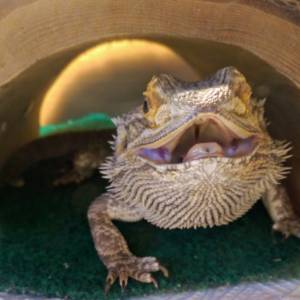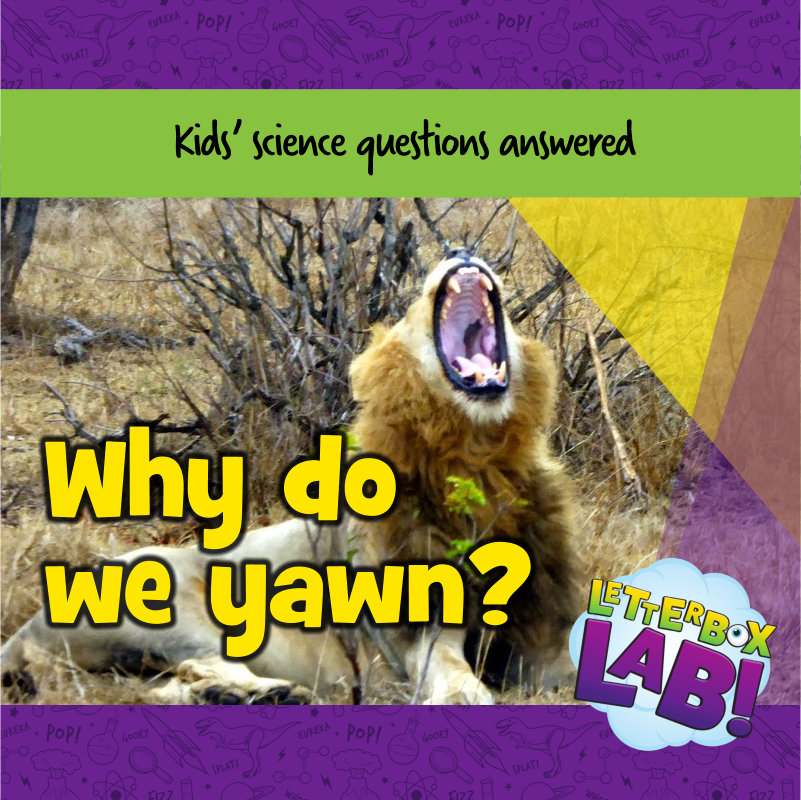We all do it. Sometimes because we should probably be going to bed, sometimes because we’re still waking up, and sometimes because we’re watching a lion do it on television. We all involuntarily throw our mouths open, take a long, deep breath, and stretch our eardrums to the point that a weird noise starts to play inside our heads. You’re probably doing it right now just because I described it, and if you’re not, the word might trigger one: we all love a good yawn.
…And if you didn’t catch a yawn already, you probably have now.
When you put the question, ‘Why do we yawn?’ into a search engine, you’ll probably find a very compelling answer by clicking on one of the results. Click on a different one, however, and you’ll find an equally compelling and plausible answer that is completely different. Congratulations! You’ve stumbled across the greatest area of science: you’re standing at the edge of human knowledge.
Theories that I’ve come across before include that yawning acts as a signal of tiredness. It’s a neat theory: social animals such as wolves, lions and early humans will travel together as a group, but some will get tired more quickly than others. The theory suggests that those individuals will yawn, setting off the rest of the group and encouraging everyone to stop for a rest.
What’s good about this theory is that it addresses the very real phenomenon of the contagious yawn. Around 50% of people will yawn when they see someone else yawning, as will many other animals, including chimpanzees and budgerigars. The contagious yawn is so prevalent that an Ig Nobel prize was once awarded to a team who found it was not so among red-footed tortoises. What’s more, it doesn’t even have to be another of the same species yawning. Dogs have been known to catch yawns from humans, and I’ve certainly caught yawns before from my bearded dragon (whom you might remember from the Great Blanket Debate). Bert doesn’t even yawn properly, he just holds his mouth open to cool down, but when I see him doing it, I can’t help but yawn in response.

Just looking at Bert with his mouth open is enough to make me yawn. Cross-species contagious mouth-opening in action.
Like many yawn theories, though, the idea is neat in principle but leaves a lot of questions unanswered. If yawns are a signal of tiredness, why do we yawn in the morning after a good night’s sleep? And why do solitary animals like tigers and snakes yawn if the function is to communicate with a group?
Other theories are easier to test scientifically. For a long time it was thought that either draws in extra oxygen or expels unwanted carbon dioxide. Seems reasonable, since it’s difficult to yawn without breathing, but the hypothesis did not stand up to the scientific method. Test subjects were given different mixtures of gases to breathe, containing different amounts of oxygen and carbon dioxide, with no notable effect on their yawn habits.
More promising results have come from tests of a theory that emerged in 2007, that yawning is a brain-cooling mechanism. All sorts of different things happen when we yawn, but the focus of this hypothesis was on the various ways in which they trigger improved air and blood flow in the head. It’s compelling too, as yawning has been found to happen more often in warm conditions than in cold, and test subjects who were asked to keep a thermometer in their mouth have demonstrated decreased mouth temperature after a bout of yawning.

The list of animals known to yawn grows longer all the time.
This and a handful of other theories point towards a further benefit of yawning for social species. If cooling the brain makes us more alert, the contagious yawn could focus a whole group of animals, preparing them for a hunt or a long presentation. But there are still questions to answer and research to be done.
Questions like these are where science gets really creative. If your child is asking about the mysterious yawn, encourage them to take delight in reaching the wild frontier of science. Take the opportunity to do some Internet research together, and think about how you might put the theories you read to the test.
I’m sure there are more theories to propose, and many won’t stand up to rigorous testing. The true purpose of, and reason for, yawning is likely to be a complicated mosaic rather than a simple solution. Nevertheless, it’s something we can’t escape any more easily than we can stop asking questions.
Happy experimenting.
Is there a curious budding scientist in your family? Subscribe to our mailing list to get the answers to their burning questions straight to your inbox!
Click here to subscribe.




Add Comment